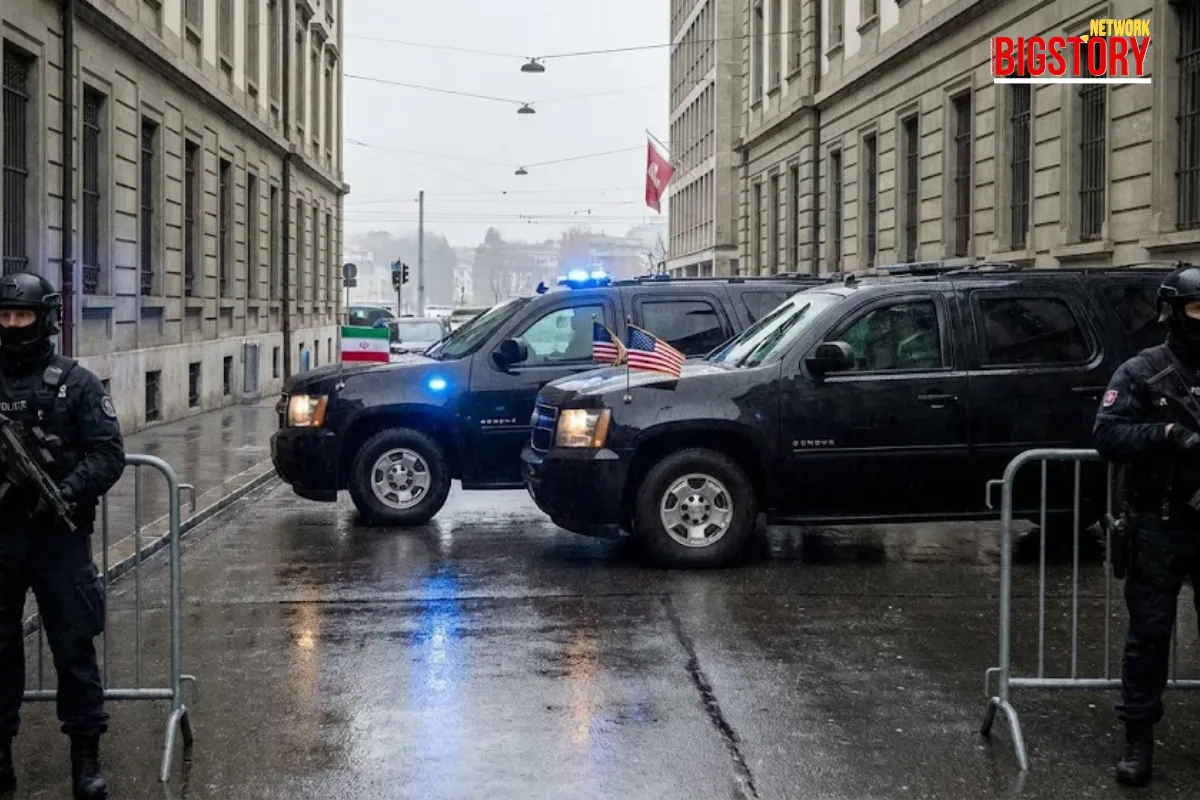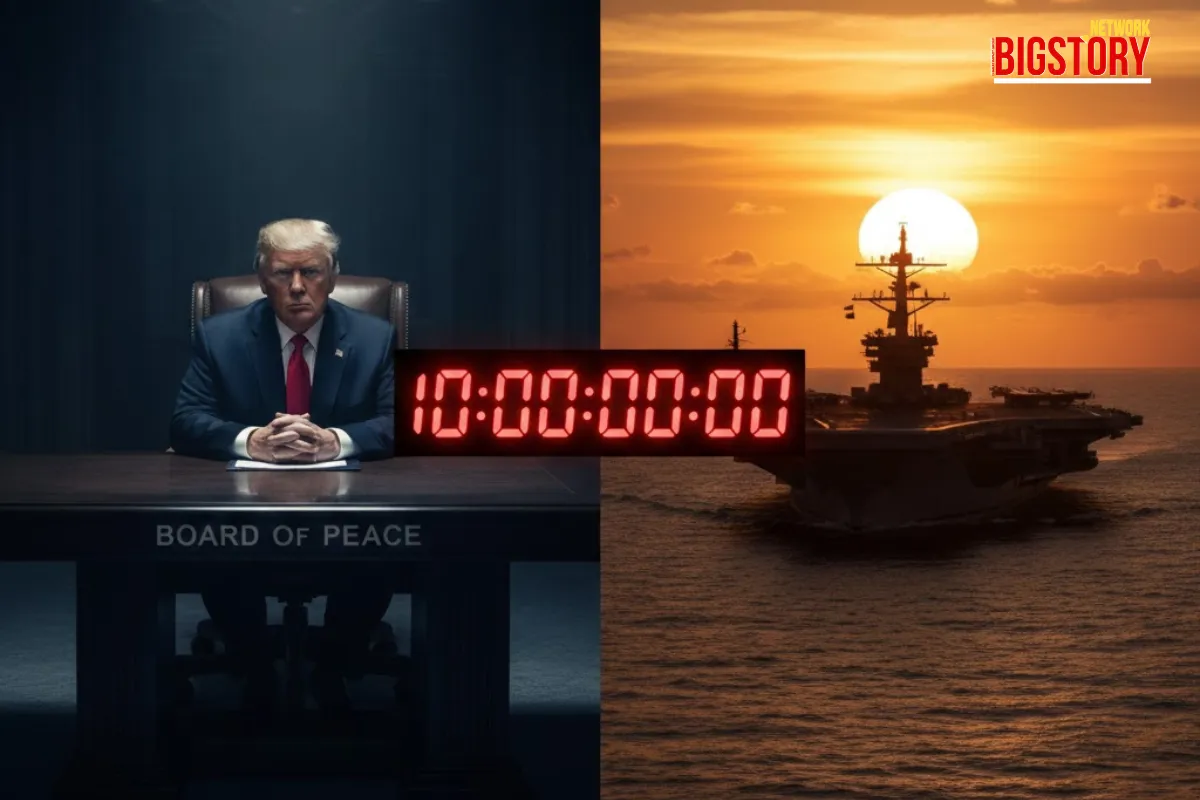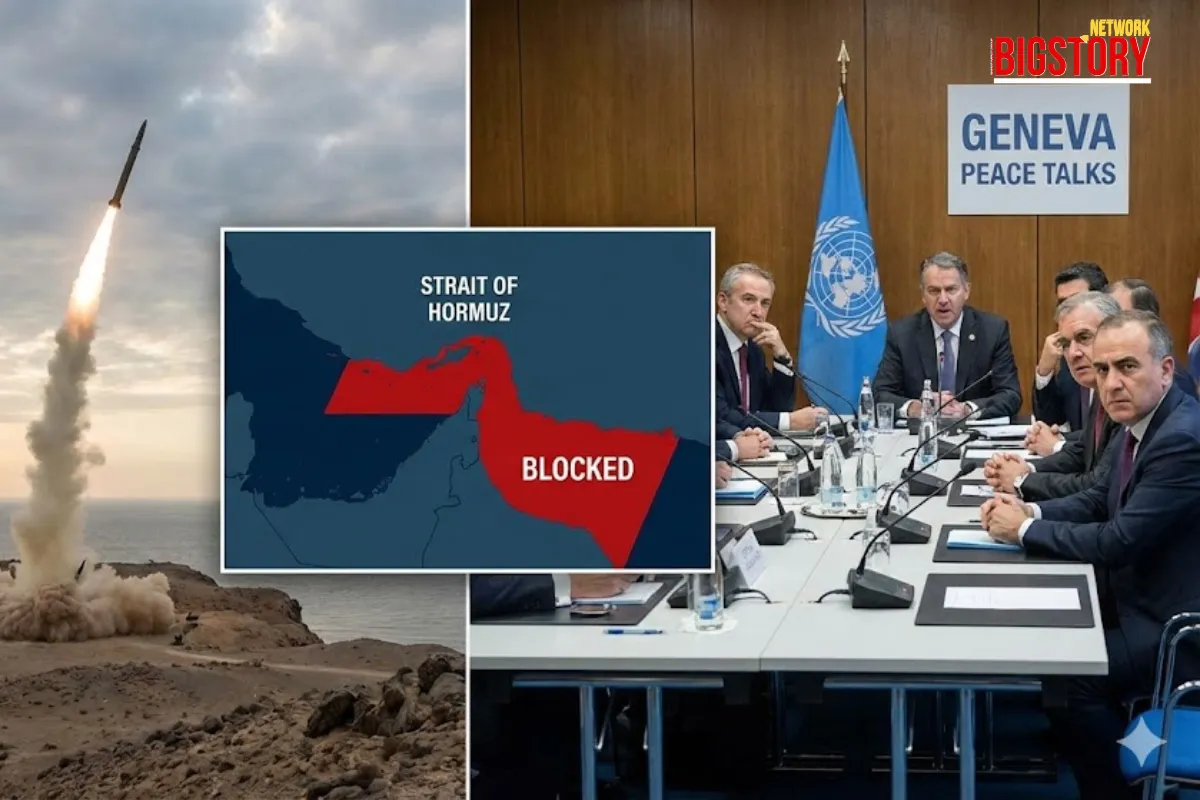Hamas evaluates Trump’s 20-point Gaza peace plan as world leaders back ceasefire initiative. Netanyahu warns of consequences if rejected.
 Sseema Giill
Sseema Giill
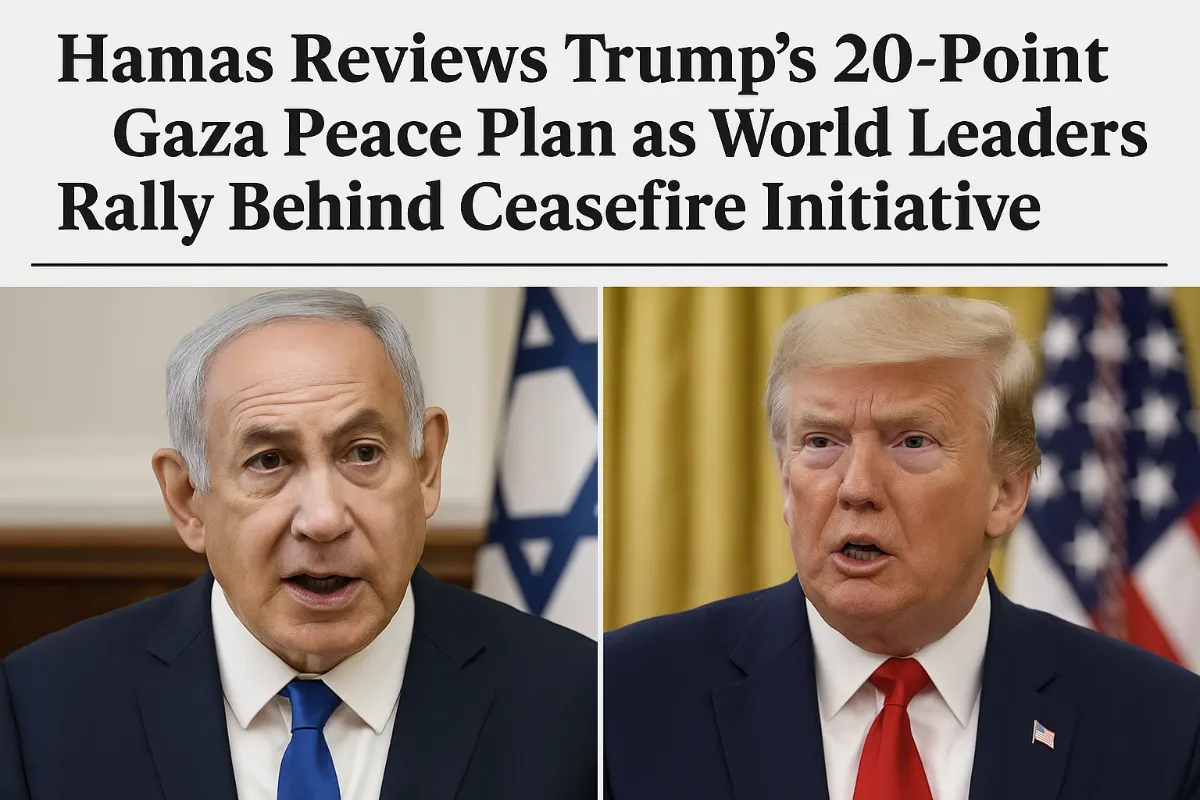
Hamas is currently weighing President Donald Trump’s 20-point peace proposal to end the two-year Gaza conflict, as Arab nations, European powers, and global leaders line up behind the White House-backed initiative announced on September 29, 2025.
What Happened: Trump unveiled the peace plan alongside Israeli Prime Minister Benjamin Netanyahu at the White House, warning Hamas of “severe consequences” if it rejects the deal.
When: The plan was announced on September 29, 2025, following four days of intense negotiations. Qatar and Egypt delivered the proposal to Hamas leaders the same day.
Where: The White House State Dining Room hosted the announcement, with Trump chairing what he called a “Board of Peace.”
Who Was Involved: Key figures include Trump, Netanyahu, former UK PM Tony Blair (as board member), and mediators from Qatar, Egypt, Saudi Arabia, Jordan, UAE, Turkey, Indonesia, and Pakistan.
Notable Quotes:
The plan marks Trump’s most ambitious diplomatic move since returning to office, coming as Israel’s campaign in Gaza nears its two-year mark with over 66,000 Palestinian casualties reported.
Past ceasefires collapsed due to disagreements: Hamas demanded a permanent end to hostilities, while Israel pushed for temporary truces. Trump’s phased approach — ceasefire, hostage exchanges, and governance reforms — aims to close that gap.
The push follows Trump’s 2024 warning of “hell to pay” if hostages weren’t freed before his inauguration, and his promise of delivering “SOMETHING SPECIAL” for the Middle East.
White House: The plan mandates that hostilities stop immediately once agreed, with all hostages released within 72 hours. Trump stressed Israel would have full U.S. backing to eliminate Hamas if it rejects the deal.
Israel: Netanyahu endorsed the framework but remains firmly against Palestinian statehood, calling it “sheer madness” at the UN.
Hamas: Leaders have dismissed the plan as biased. Spokesman Ismail Al-Thawabta said it amounts to “guardianship over Gaza,” while sources called the conditions “unreasonable.”
Palestinian Authority: Welcomed Trump’s “determined efforts,” expressing support for reforms and a two-state vision.
Trump’s peace plan has triggered rare international alignment behind U.S. leadership, with Arab, European, and Asian powers voicing cautious support. Its success could reshape Middle East diplomacy, but failure risks reinforcing military solutions over negotiation.
As the world waits for Hamas’s decision, Trump declared the moment could be “one of the great days ever in civilization.”
Q1: What is Trump’s 20-point Gaza peace plan?
The plan is a U.S.-led proposal unveiled on September 29, 2025, aimed at ending the two-year Gaza war. It includes a ceasefire, hostage-prisoner swaps, humanitarian aid, and long-term governance reforms under international oversight.
Q2: Who supports the peace plan?
The plan has gained backing from Israel, Arab nations including Egypt, Saudi Arabia, Qatar, and Jordan, as well as global powers like the UK, France, India, and Australia. The Palestinian Authority has cautiously welcomed it.
Q3: What is Hamas’s response so far?
Hamas has not officially accepted or rejected the proposal but has criticized it as biased toward Israel. Leaders say it imposes “guardianship” over Gaza and denies Palestinian rights.
Q4: Does the plan include Palestinian statehood?
Yes, the long-term vision mentions a potential pathway to Palestinian statehood, but Israeli PM Benjamin Netanyahu has openly rejected the idea, calling it “madness.”
Q5: What role will Hamas have in Gaza under the plan?
Hamas is excluded from governance. Gaza would be run by a technocratic Palestinian committee under international supervision, with Hamas required to disarm completely.
Q6: How does the plan address humanitarian needs?
It promises immediate delivery of food, medical supplies, hospital restoration, and large-scale reconstruction funded by international donors.
Q7: Why is this plan considered significant?
This is Trump’s most ambitious Middle East peace push since returning to office. Its broad international support makes it a potential turning point in the conflict — though its success depends entirely on Hamas’s decision.
Q8: What happens if Hamas rejects the deal?
Trump stated that if Hamas refuses, Israel will have full U.S. backing to escalate militarily and “finish the job.”



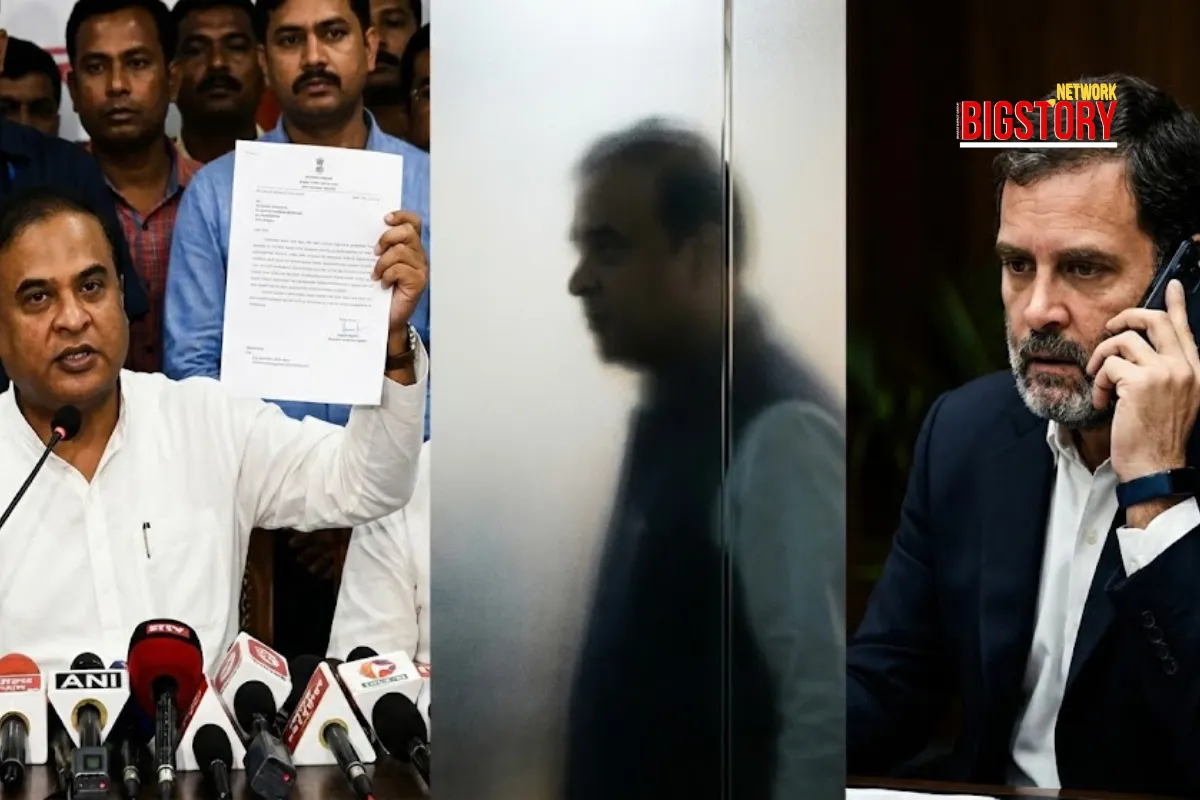


Sign up for the Daily newsletter to get your biggest stories, handpicked for you each day.
 Trending Now! in last 24hrs
Trending Now! in last 24hrs

